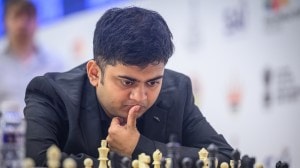Coofs,xylocarps and the noble glory of crosswords
The debate: When does looking for hints in reference books and on the internet become cheating?
Christopher Caldwell
Two decades of technological change have,alas,solved the organisational problems traditionally faced by mobs. On the website of even the most respectable metropolitan broadsheet,an article about the relative merits of consumption taxes and income taxes can be followed by hundreds of ad hominem insults and scatological taunts.
It is a relief and a surprise whenever people find more edifying things to bicker over. Over the past two weeks,hundreds of readers have lit up the crossword-doers blog of the Guardian with a passionate argument over the ethics of completing cryptic puzzles. At what point,moderator Alan Connor asked,does looking for hints in reference books and on the internet become cheating?
This turns out to be a complicated problem. No one believes it is OK to seek help for a crossword submitted as part of a competition,but beyond that the rules are fluid. Most puzzle-doers seem comfortable with the rules that apply in Scrabble: you can use a dictionary to adjudicate what you have come up with,but not to hunt for what you have not. Consulting an online dictionary about whether acnestis is a word is one thing; running a clue through an online anagram-generating programme (there are such things) is quite another.
The internet makes such distinctions harder to draw. The web is,as one solver put it,part-reference work,part-cheating machine and the problem is not limited to crosswords. For almost anyone working on a computer,the tools of ones trade have uses that are distracting,irrelevant and counterproductive. This is a challenge that is new to our age. In olden times,a plough,an axe,a spinning jenny could not be transformed instantaneously into a concert or a sports match,let alone a gambling den or a pornographic cinema.
Certain puzzle-doers try to politicise questions of when to research and when not. Some do so in a hyper-egalitarian way sauce for the goose is sauce for the gander. If puzzle setters used the internet to compose the puzzle,they say,well then,the puzzle solvers can too. This is a shallow way of looking at things. Just as with the belief that whatever is true of men must be true of women,it is a recipe for the de-diversification of society.
There are also anti-egalitarians who drew up a hierarchy of puzzles,along with rigid distinctions about the conduct proper to each. A daily broadsheet cryptic should be solved without recourse to reference books,they say,but weekly magazine-style puzzles,like the Listener of yesteryear and the Observers Azed puzzles of today,because they set words such as xylocarp,seem to assume recourse to reference books. The latter are deliberately operating outside used language, wrote one solver,and the compilers expect it. One writer laid out the difference in an even wittier way: If youd be more embarrassed to admit that you knew what the word meant than that you didnt … then its not cheating. The only anger (or feigned anger) was directed at Scotland for clogging the English language with hard-to-solve-for synonyms,such as birkie and coof.
In the debate over what constitutes cheating,puzzle-doers often confuse the moral and the non-moral. One common assumption is that self-improvement is not only not selfish but somehow altruistic. For one solver,looking up words online is part of the point of doing a puzzle,since the broadening of ones vocabulary must surely be a positive thing. Of course it is,but not in any ethical way. It is good that you keep trim and eat low-fat foods,but it is not a public service.
Crossword-doing was meant to be fun,and a particular kind of fun. In a life full of dangerous complexities,it offers us harmless complexities as a diversion. In a society where brass-tacks intelligence is overcompensated,it offers a small stage on which those whose intelligence is of a less practical kind can gain a kind of validation for it,even if that validation is known only to themselves and maybe a narrow circle of pub companions. There is an anti-utilitarian nobility to the crossword-doers knowledge and that knowledge is never as useless as it looks. The skill of seeing problems aslant can become critically important,even if,in normal times,it means little more than knowing that when you see artist in a clue you should expect RA somewhere in the answer.
Behind the question about what liberties a crossword puzzler can take is a more depressing question about whether puzzlers skills are dying out,and with them puzzlers nobility. An age in which everyone feels he can Google what he doesnt know is an age in which the quirky gifts of crossword-doers are of permanently diminished value,and in which the glorious hobby threatens to go the way of building ships inside of bottles.
2011 The Financial Times Limited



- 01
- 02
- 03
- 04
- 05




























